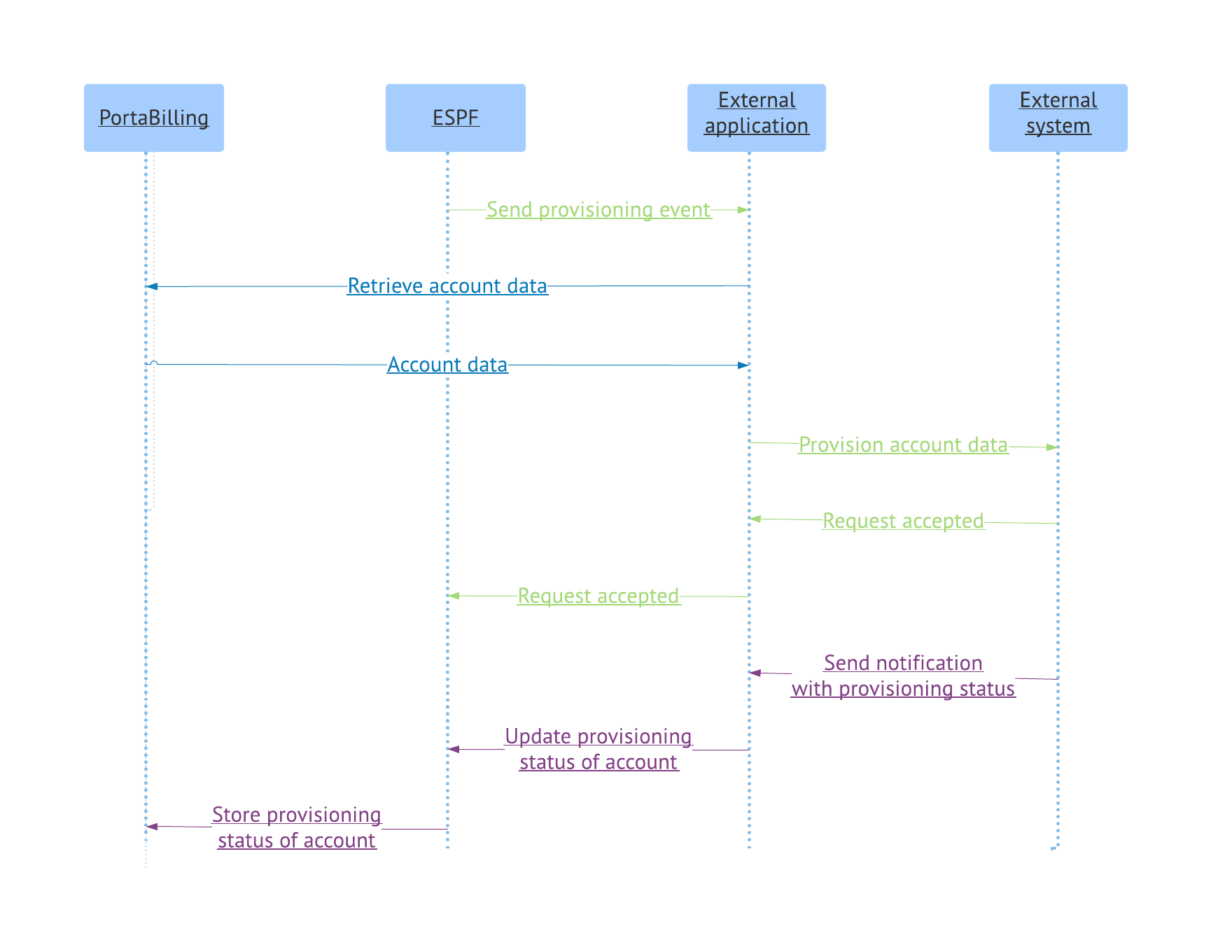When an administrator adds or removes customers in PortaBilling, or when customer configuration changes (e.g., a credit limit is reached, a product is changed, an invoice is issued or becomes paid, etc.), these changes are recorded as provisioning events. The External system provisioning framework (ESPF) monitors these events and sends them via the HTTP/HTTPS protocol to an external application (referred to as the Application in this document).
The Application acts as follows:
- receives provisioning events that contain a unique ID of the entity (e.g., an account) from PortaBilling,
- retrieves the information about this entity (e.g., account’s number, product, service features, etc.) from PortaBilling via the PortaBilling API using the entity’s unique ID (e.g., i_account),
- updates the configuration of an external system via this system’s API,
- updates the account’s provisioning status in PortaBilling via the ESPF API.

ESPF API available in OpenAPI format
You can access the built-in API documentation for the ESPF API at https://{HOST}:{PORT}/doc/api, where {HOST} is the domain name/IP of your PortaBilling server, and {PORT} is 443. e.g., https://pandatelecom:443/doc/api. With the built-in API documentation, you can review methods and their parameters, request/response examples, and even call test requests.
To test API methods from a specific realm, e.g., Admin or Reseller, you can log in to the corresponding PortaBilling web interface and then right away switch to the built-in API documentation page.
If you are not logged in, you need to run the “Session/login” request with the corresponding credentials on the specific realm. The access token is then acquired from the “Session/login” method and used for authentication automatically.
Note that to test custom API servers, you still need to acquire and enter the access token to run tests.


